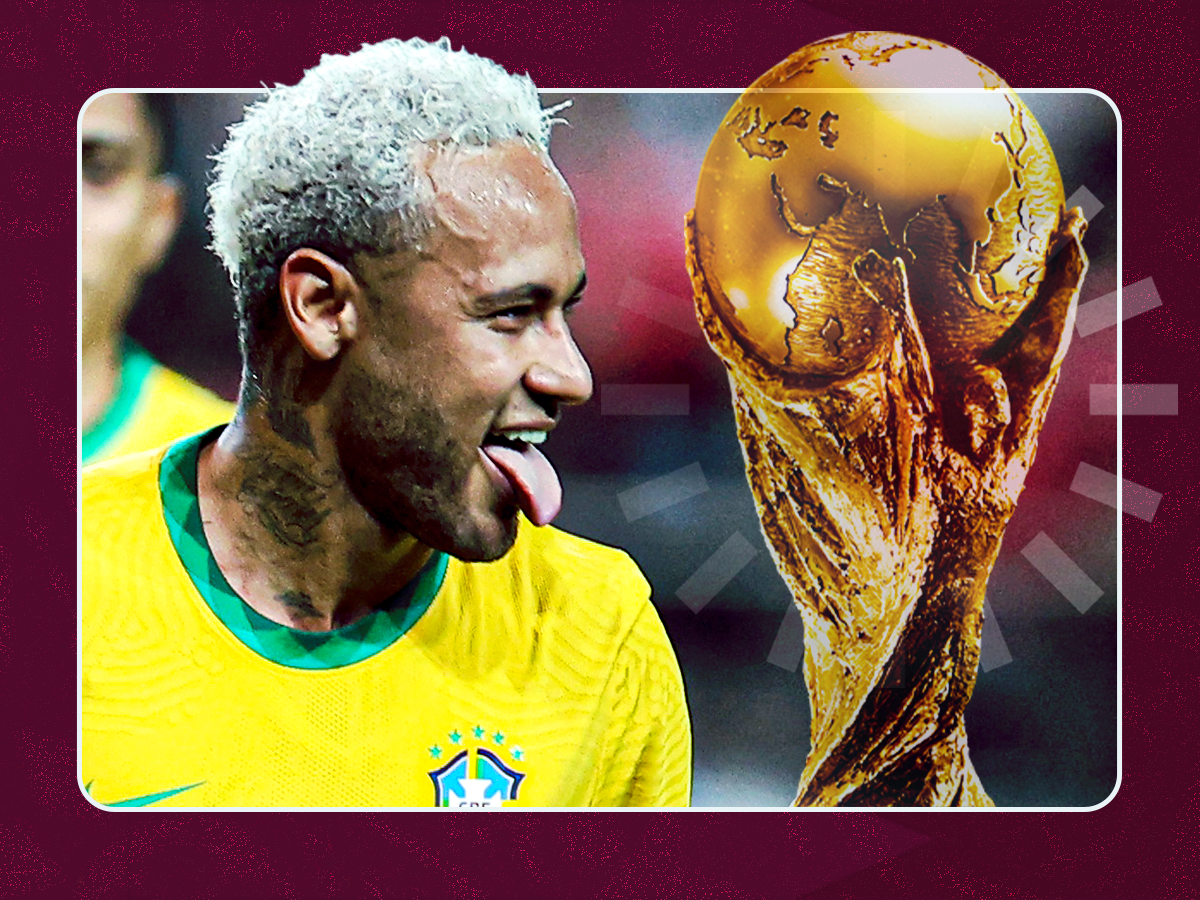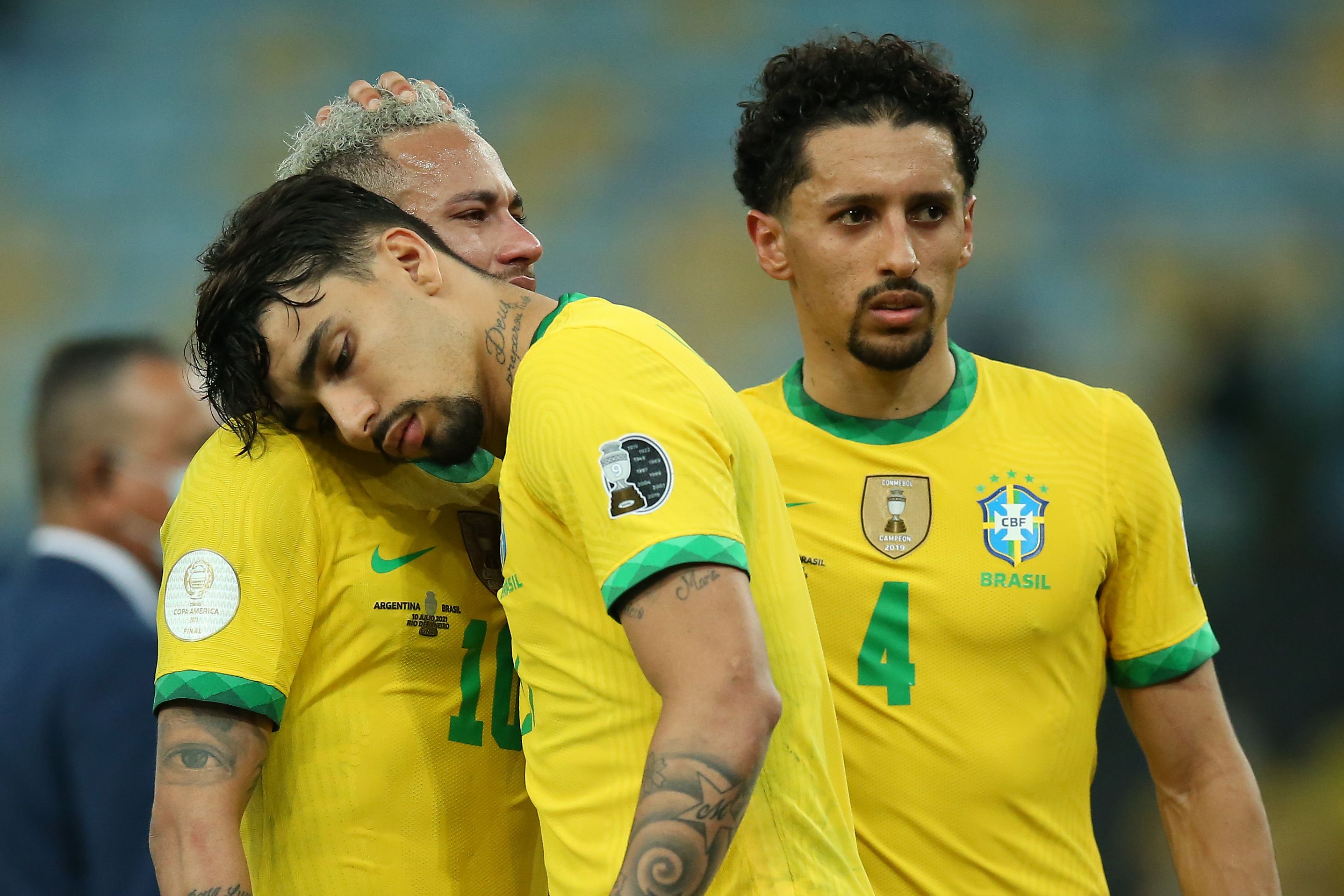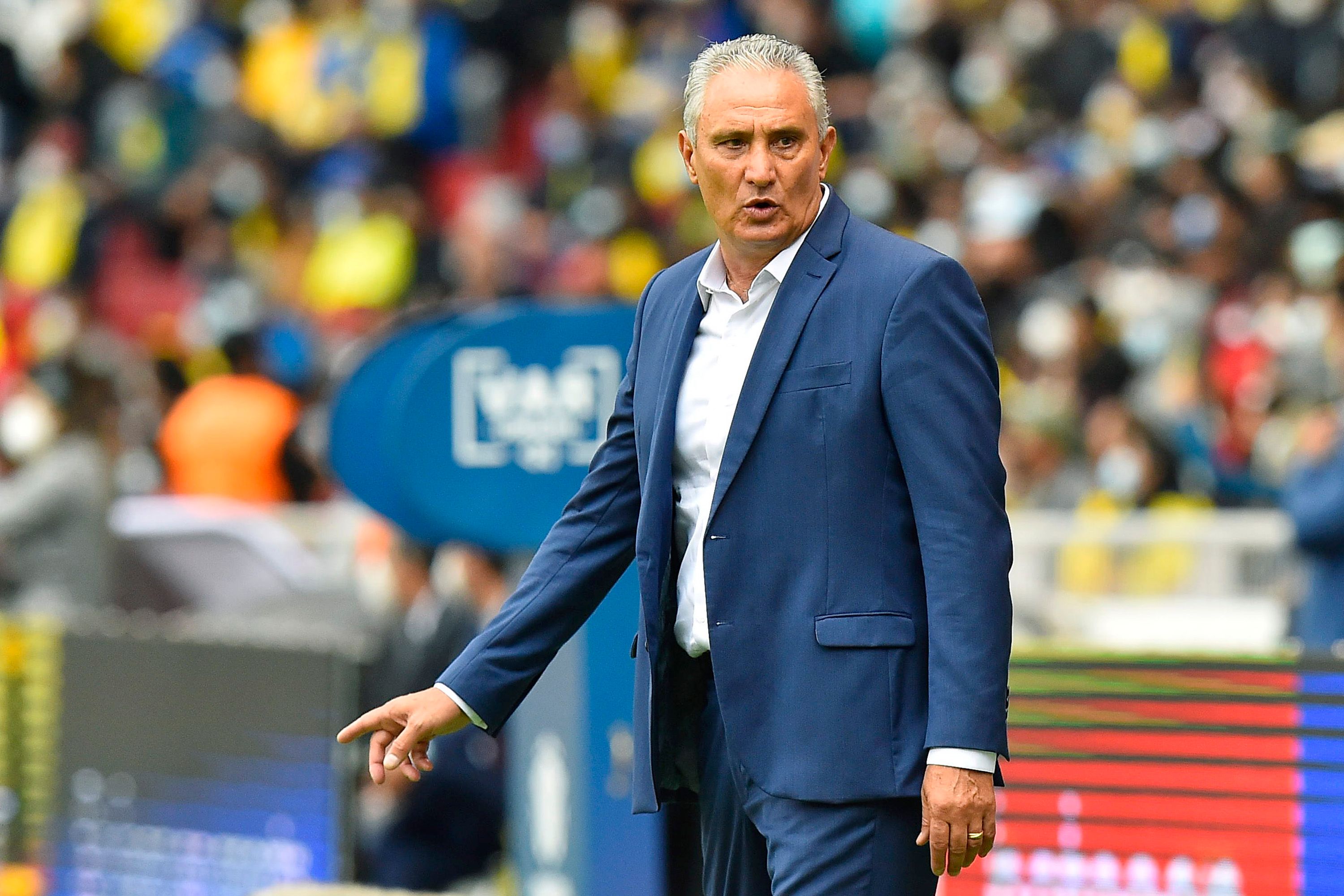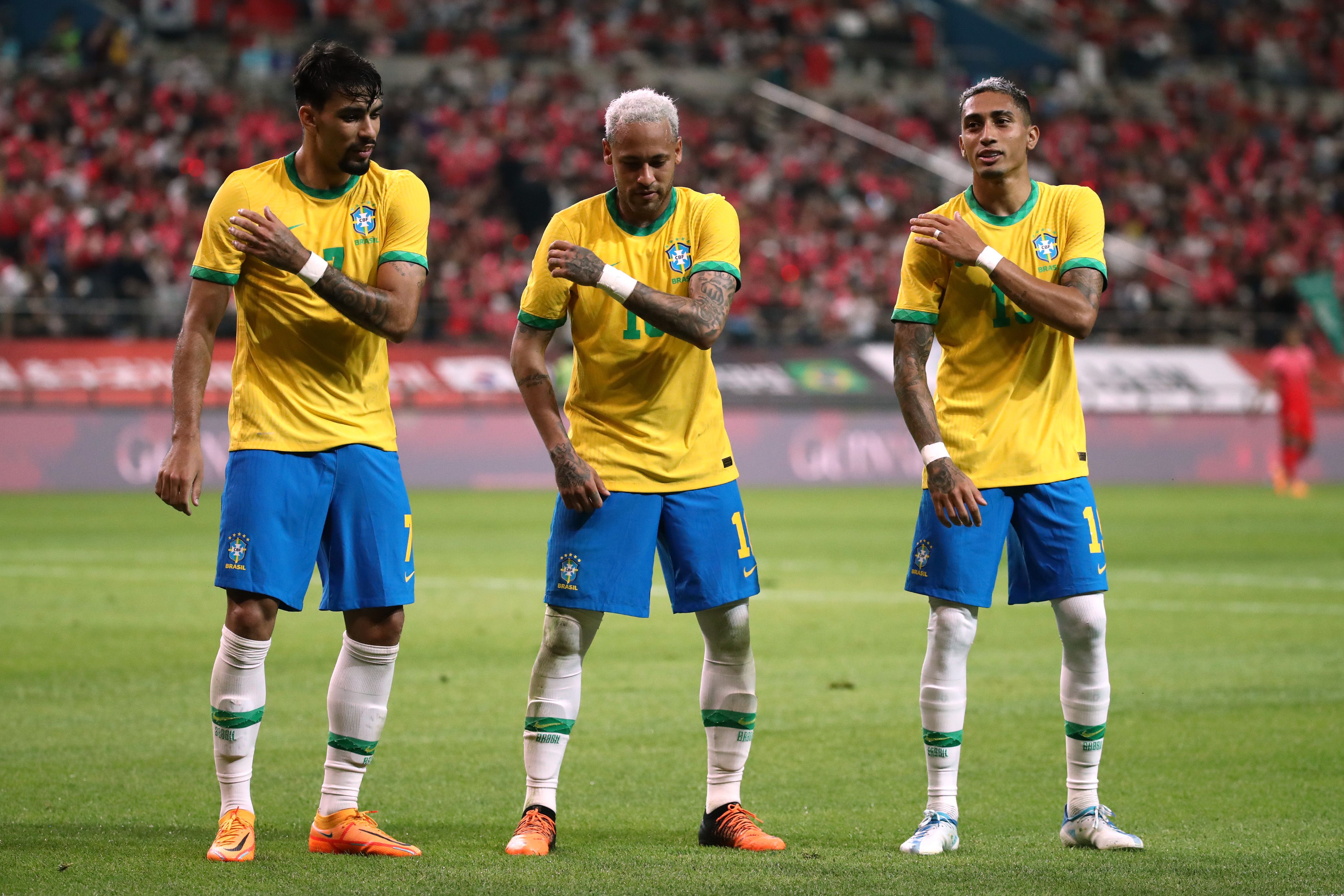In the reception lobby of the CBF, Brazil’s FA, there is a billboard. On the right are a collection of action photos of Neymar, Thiago Silva, Vinicius Junior and Philippe Coutinho. On the left is a picture of the World Cup trophy. And in the middle is the slogan ‘Rumo ao Hexa,’ which translates as ‘on the way to win number six.’
That is the almost insane pressure that Brazil are under in a World Cup. Even academic books refer to tournaments in the past that Brazil won, and tournaments they lost, as if the competition was heads or tails a fifty-fifty contest where anything less than triumph is seen as failure.
Put in that light, the astonishing 7-1 collapse to the Germans in that 2014 semi final is not so surprising. When the team sensed that it was second best, that it was unable to live up to the burden of expectations, it simply ceased to function.
Brazil lives out a manic depressive relation with its national team. It doesn’t take long for perceptions to change. In the eyes of the public, the players can quickly go from being unbeatable stars to a bunch of no hopers, and back again.
In the middle of last year, the verdict was not looking good. “The Euros are clearly showing the technical development of European football,” wrote Walter Casagrande, a 1986 World Cup veteran and one of Brazil’s leading pundits. “If the Brazil team doesn’t show something new, then we’ll be coming home early from the next World Cup.”
At the same time as the Euros, Brazil were hosting the controversial 2021 Copa America, which ended with defeat to Argentina in the final — the first time Brazil had ever failed to win a Copa staged on home ground. At that point, for many in the country, it hardly seemed worthwhile turning up for Qatar. The 20-year wait for the ‘hexa’ — title number six — would inevitably be prolonged.
RIO DE JANEIRO, BRAZIL - JULY 10: Neymar Jr. of Brazil is comforted by teammates Marquinhos and Lucas Paqueta after the final of Copa America Brazil 2021 between Brazil and Argentina at Maracana Stadium on July 10, 2021 in Rio de Janeiro, Brazil. (Photo by Alexandre Schneider/Getty Images)
Fast forward a year and a bit and the mood is very different. Since that defeat Brazil have put together a run of 12 wins, three draws and no defeat, with 38 goals scored and just five conceded. And some of the displays have been even more striking than the statistics, with the team rarely in the slightest defensive trouble and showing a rich repertoire of attacking options.
Raphinha, now of Barcelona, came into the team as if he has been playing there all his life. Vinicius Junior has exploded as a global star. Richarlison has recovered form and fitness. Lucas Paqueta has emerged as a talented attacking midfielder with the versatility to play in a number of different positions. And Neymar is focused on shining in the competition which will define his legacy in the eyes of his countrymen.
The collective comes first
The list of strikers and wingers available to Brazil makes frightening reading. But there is a golden rule in football — the team makes the stars. Back in 2006 Brazil had Ronaldo, Ronaldinho, Kaka and Adriano. But they did not have a team. The way the parts were put together did not make a lot of sense. This time the collective comes first — and there is an impressive figure taking the big decisions.
Tite — real name Adenor Bachi — is by some distance the outstanding Brazilian coach of his generation. Now 61, he has been coaching for over half his life, since knee injuries brought a premature end to his playing career as a midfielder.
He has won everything — the Brazilian league and cup, South America’s equivalent of the Champions League and the Club World Cup, when his Corinthians side beat Chelsea a decade ago, and he took Brazil to triumph in the 2019 Copa America. Only the World Cup is missing, and if it doesn’t come this year, it will not be for lack of hard work.
“I’ve learned how to learn” is one of his phrases. Before the national team job came his way — belatedly — in 2016 he went to Europe to study, to see how the best teams managed to control the midfield. His Brazil side press the opposition as no Brazil team has ever done before.
QUITO, ECUADOR - JANUARY 27: Tite of Brazil reacts during a match between Ecuador and Brazil as part of FIFA World Cup 2022 Qatar Qualifiers at Rodrigo Paz Delgado Stadium on January 27, 2022 in Quito, Ecuador. (Photo by Rodrigo Buendia-Pool/Getty Images)
Tite’s team were not far off in Russia 2018. Their epic quarter final with Belgium was probably the outstanding game of the tournament, and Brazil surely deserved the right to take the match into extra time. They look better this time.
There was some bad luck four years ago. Key midfielder Renato Augusto, the man who made the team tick, had run into his all too frequent injury problems. Neymar was coming off a tricky foot injury, and Gabriel Jesus chose the wrong moment for his form to evaporate.
There will probably be some misfortune along the way this time. But the experience of four years ago leaves Brazil better equipped to deal with it. “A series of factors have improved me since 2018,” says Tite. “There’s the emotional side. We can be more focused, because we know about the pressures. And we’ve seen that other teams don’t tremble against us, or against anyone else. All of them have extraordinary pride in representing their country and go out to do their best irrespective of the opposition. But now we have more attacking variations.”
The key difference is time in the job. Tite had less than two years in the run up to Russia. “It didn’t give me the experience of all the experiments, mistakes and variations that this time I have.” Now he has been in charge for the complete cycle. He has been able to improve the side with and without the ball — to have them pressing as a unit, and also, with minor changes in personnel, to switch between formations in accordance with the opposition and the state of the game.
Between World Cup qualifiers, Russia 2018, and two versions of the Copa America, Tite’s Brazil have played 47 competitive games — and lost just two of them.
Tite also points proudly to the statistics: “We’ve had around 60% of the possession in these competitive games. We want the ball. And our goal difference in these games is something like plus 90. I believe in defensive solidity, and that goes together with a belief in creativity with the ball. With a solid routine you are more open to creativity. It’s a process in which you foment creativity in the final third of the field, where we can pass through the opposition, attack with long balls over the top or have individual inspiration.”
SEOUL, SOUTH KOREA - JUNE 02: Neymar Jr. of Brazil celebrates scoring his side's second goal with his teammates Lucas Paqueta (L) and Raphinha (R) during the international friendly match between South Korea and Brazil at Seoul World Cup Stadium on June 2, 2022 in Seoul, South Korea. (Photo by Chung Sung-Jun/Getty Images)
When he speaks he holds firm eye contact. He is as charismatic as he is competent, and it will be fascinating to see what happens to him after the World Cup when, whatever the result in Qatar, he will step down from the Brazil job.
For years he was emphatic. He could not see himself working in Europe because he believed that it would be impossible for him to achieve excellence in a second language. These six years with Brazil have changed his thinking. After working with this quality of player, a return to domestic Brazilian football would be a comedown, especially as he continues to rail about the dreadful standard of the pitches.
He will almost certainly take some time off after Qatar, but then he will be open to offers — how many and how big they will be will surely depend on how well his team performs in the World Cup.
Which brings us back to those remarks last year from Walter Casagrande, and the fear he felt watching the Euros. This is well founded. Since the last World Cup win 20 years ago, every Brazil campaign has ended as soon as they came up against a western European team in the knockout stages. It has been hard for Brazil to prepare for this challenge.
They have been desperate to fix up friendlies against European opposition, but the Nations League has made it all but impossible. A visit to the Czech Republic in 2019 is the only time since Russia that Brazil have lined up against Europeans. And so their warm up work for the big challenge in Qatar has been more theoretical than practical.
We will have to wait until the tournament to find out the relative merits of Brazil and the best that Europe has to offer. But with Tite in charge of a very promising squad, we are going to have fun finding out, while Brazil are entitled to dream that they really are on their way to the ‘hexa.’






















